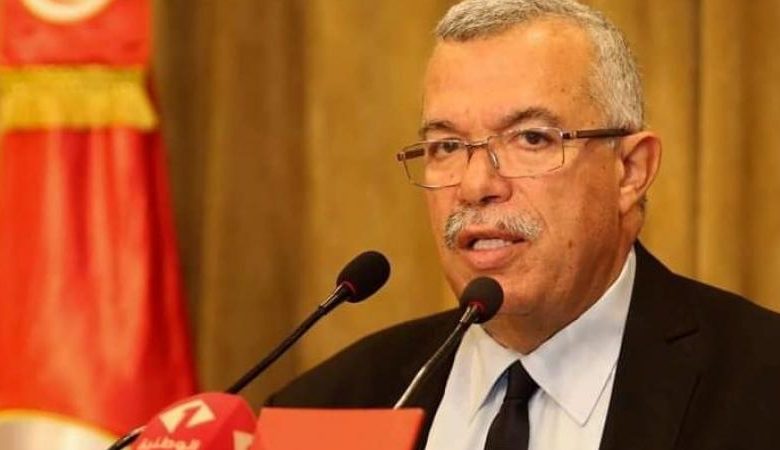Tunisia: Bhiri faces new charges of torture and murder

A new case is facing former Justice Minister Noureddine Bhiri, but this time it is not a case of financial corruption, but a case of torture, murder and abuse of position.
Habib Tarkhani, the deputy prosecutor and spokesman for Tunisia’s appeals court, said: Acting on instructions from the Minister of Justice, the Prosecutor General of the Court of Appeal of Tunisia has authorized the Public Prosecutor of the Court of First Instance of Tunisia to open an investigation against anyone who will be uncovered in the investigation of the death of the late Jilani al-Daboussi, according to local radio station Mosaique FM.
Sami al-Daboussi, the son of the late Jilani al-Daboussi, accused officials of being behind the death of his father, who was imprisoned in 2011.
In previous media statements, he confirmed that his deceased father, Jilani al-Daboussi, was detained on October 8, 2011 in the Court of First Instance in Jendouba, and his kidnapping took place without informing his lawyer.
He said aid agencies and political parties did not condemn what happened to his father at the time, accusing then-Justice Minister Noureddine Bhiri and Health Minister Abdellatif Mekki of planning a systematic torture of his father for 28 months.
In 2011, the first investigating judge at the Court of First Instance in Jendouba issued a prison deposit card against businessman, member of the House of Representatives and the central committee of the dissolved Constitutional Democratic Rally Party, Jilani al-Dabousi, a clinic owner in Ain Draham district, who was charged with fraud and the disintegration of the property of others.
In April 2011, the city of Tabarka witnessed a fire in a sanatorium. The king of Jilani Al-Daboussi, who was a member of the Council of Representatives from Jendouba in the 1989 elections, also served as the mayor of Tabarka.
The United Nations Human Rights Committee received a complaint against Tunisia in 2019 from the family of Jilani Al-Daboussi, a French-Tunisian close to the former regime, who died in 2014 following his pre-trial detention, as the family’s lawyer had previously stated.
This complaint, registered on 15 March 2019 in Geneva, is intended to refer to the serious violations of the International Covenant on Civil and Political Rights committed by Tunisia against this doctor and former member of the party of former President Zine El Abidine Ben Ali.
Tunisian President Kais Saied said those placed under house arrest were supposed to be in prison.
During a meeting with Prime Minister Najla Bouden, the Tunisian president said: “The Brotherhood leader and security official who were placed under house arrest were supposed to be in prison, but we are not judges to put them there”.
The Tunisian president said in statements carried by the official news agency yesterday: “There is no government of judges, no state of judges, but Tunisian state judges who apply the law”.
The Tunisian president said that his government “does not target the judiciary, but the judiciary and judges cannot be legislators, and we ask them to reveal the facts”.
Kais Saied says: “The judiciary has incriminating documents against those involved in crimes of treason, links, and external financing, and the punishment is death”.
A week ago, Tunisia’s Interior Ministry placed under house arrest a Brotherhood leader, former Justice Minister Noureddine Bhiri, who is in charge of Ennahdha’s secret service, on terrorism-related charges related to the exodus of Tunisian youth to trouble spots.












